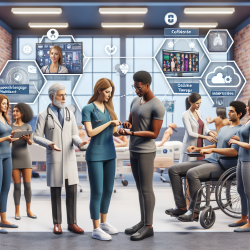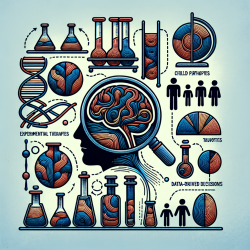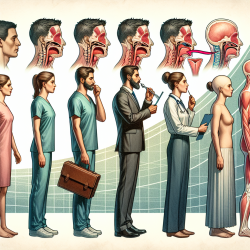Boost Your Skills with Interdisciplinary Simulation Education
In the fast-paced world of healthcare, the ability to respond effectively in critical care situations is paramount. A recent study titled Unifying interdisciplinary education: designing and implementing an intern simulation educational curriculum to increase confidence in critical care from PGY1 to PGY2 highlights the benefits of simulation-based education in boosting confidence and competence among medical interns. This blog explores how these findings can be applied to improve skills in various professional fields, including speech-language pathology.
Understanding the Study
The study implemented a longitudinal, multidisciplinary critical care simulation curriculum within a teaching hospital. Its primary goal was to increase learner confidence in critical care topics and procedural skills across all specialties. Secondary goals included improving communication skills and achieving high learner satisfaction. The curriculum involved three 4-hour simulation-based sessions over six months, with pre- and post-curricular surveys to evaluate self-confidence in critical care topics, procedures, and communication skills.
Key Findings
- Significant improvement in resident confidence across all critical care areas (p < .05).
- Effective facilitator debriefing, as demonstrated by the Debriefing Assessment for Simulation in Healthcare Student Version (DASH-SV).
- Over 75% of interns expressed a desire for future educational sessions.
Applying These Insights
While the study focused on medical interns, the principles of simulation-based education can be applied across various fields, including speech-language pathology. Here are some ways practitioners can enhance their skills using these insights:
- Adopt Simulation-Based Learning: Incorporate simulation into training programs to provide experiential learning opportunities. This can help practitioners develop critical thinking and problem-solving skills in a controlled environment.
- Focus on Communication Skills: Effective communication is crucial in any field. Use simulation to practice and refine communication strategies, especially in challenging scenarios.
- Encourage Interdisciplinary Collaboration: Collaborate with professionals from other disciplines to gain diverse perspectives and enhance problem-solving capabilities.
- Seek Continuous Feedback: Use structured debriefing sessions to gain insights into performance and areas for improvement. This feedback loop is essential for continuous professional development.
Encouraging Further Research
The study highlights the importance of ongoing research and innovation in education. Practitioners are encouraged to explore further research opportunities to enhance their skills and contribute to the advancement of their fields. By staying informed and actively participating in research, professionals can ensure they are equipped to meet the evolving demands of their roles.
To read the original research paper, please follow this link: Unifying interdisciplinary education: designing and implementing an intern simulation educational curriculum to increase confidence in critical care from PGY1 to PGY2.










